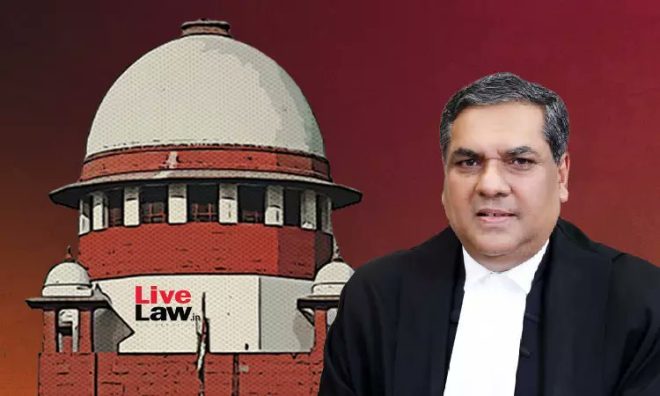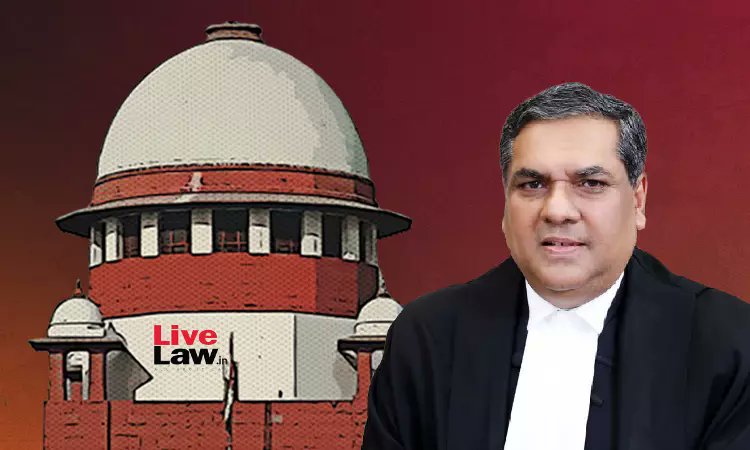
Supreme Court Judges Unanimously Agree to Declare Assets
In a landmark decision, all judges of the Supreme Court of India have unanimously agreed during a full court meeting to declare their assets to the Chief Justice of India. This significant move, announced via a tweet from Live Law on April 3, 2025, marks a pivotal step towards transparency and accountability within the highest echelons of the Indian judiciary.
Importance of Asset Declaration
The decision to publicly declare the assets of Supreme Court judges is crucial for several reasons. Firstly, it enhances public trust in the judiciary by ensuring that judges are held to the same standards of accountability expected of public officials. Asset declarations serve as a deterrent against corruption and unethical behavior, reinforcing the integrity of the judicial system.
Commitment to Transparency
The asset declarations will be made accessible on the official Supreme Court website, allowing citizens to view the financial backgrounds of the judges. This move aligns with global trends towards transparency in governance, where public officials are encouraged to disclose their financial interests to mitigate conflicts of interest. By making this information public, the Supreme Court is taking a proactive step in fostering a culture of transparency.
Historical Context
The announcement comes at a time when the Indian judiciary faces intense scrutiny regarding its independence and integrity. Recent years have seen debates surrounding judicial appointments, judicial accountability, and the need for reforms in the legal system. By agreeing to disclose their assets, the Supreme Court judges are setting a precedent for accountability that could have ripple effects throughout the legal landscape in India.
- YOU MAY ALSO LIKE TO WATCH THIS TRENDING STORY ON YOUTUBE. Waverly Hills Hospital's Horror Story: The Most Haunted Room 502
Public Reaction
The public response to this announcement has been overwhelmingly positive. Many citizens and legal experts have hailed this initiative as a necessary step towards greater accountability in the judiciary. The move has been widely discussed on social media platforms, with users expressing their approval of the decision. It is viewed as a significant stride towards restoring faith in the judicial system, which is essential for a healthy democracy.
Legal Framework
The initiative to declare assets aligns with existing legal frameworks that govern public officials in India. The Right to Information Act and various judicial guidelines have emphasized the need for transparency in public office. By adhering to these principles, the Supreme Court is not only complying with legal mandates but also setting an example for other branches of government.
Future Implications
This decision could pave the way for further reforms within the Indian judicial system. Should this practice become a norm, it could influence legislative measures aimed at enhancing transparency and accountability across all levels of government. The implications of this move could extend beyond the judiciary, encouraging other public sectors to adopt similar transparency measures.
Conclusion
The unanimous agreement among Supreme Court judges to declare their assets marks a significant milestone in the pursuit of transparency and accountability in the Indian judiciary. By making this information publicly available, the Supreme Court is taking a commendable step towards rebuilding public trust and reinforcing the integrity of the legal system. As this initiative unfolds, it will be essential to monitor its impact on both public perception and institutional reforms within the judiciary and beyond.
For ongoing updates and further information regarding the asset declarations and their implications, interested individuals can visit the official Supreme Court website.

#BREAKING All Supreme Court Judges unanimously agree in a full court meeting to declare their assets to the Chief Justice of India.
The declaration of the Judges’ assets will be uploaded on the Supreme Court’s website.#SupremeCourt pic.twitter.com/XT9OvDaNmo
— Live Law (@LiveLawIndia) April 3, 2025
#BREAKING
In a landmark decision, all Supreme Court Judges in India have come together in a full court meeting to declare their assets to the Chief Justice of India. This unprecedented move highlights the ongoing commitment to transparency and accountability within the highest echelons of the judiciary. The declaration of the judges’ assets will be made publicly available on the Supreme Court’s official website, making it accessible to all citizens. This initiative is a significant step toward enhancing public trust in the judicial system.
All Supreme Court Judges Unanimously Agree
The unanimous agreement among all Supreme Court Judges is noteworthy. It demonstrates a collective understanding of the importance of transparency in the judicial process. The decision was not taken lightly; it reflects a growing awareness of the need for integrity and accountability among those who hold the power to interpret and uphold the law. By declaring their assets, the judges are sending a clear message that they hold themselves to the same standards expected of public officials and that they are willing to be scrutinized.
The Importance of Asset Declarations
Asset declarations serve a vital purpose in promoting transparency. They allow the public to see the financial interests of their judges, which can help to mitigate conflicts of interest. By having this information publicly available, citizens can feel more assured that decisions made by the judiciary are not influenced by personal financial gain. This step is particularly crucial in a country like India, where trust in institutions can be fragile. When the public can see that judges have nothing to hide, it fosters a sense of confidence in the judicial system.
The Role of the Chief Justice of India
The Chief Justice of India, as the head of the judiciary, plays a pivotal role in this process. By overseeing the asset declarations, the Chief Justice ensures that there is a standardized approach to transparency among the judges. This centralization is essential for consistency and fairness. It also reinforces the Chief Justice’s position as a leader who prioritizes integrity within the court system. This move is a clear indication that the judiciary is evolving and adapting to modern expectations of governance and public accountability.
Public Access to Information
One of the most significant aspects of this initiative is that the declaration of the judges’ assets will be uploaded on the Supreme Court’s website. This accessibility is crucial in a democratic society where citizens have the right to know about the assets of those who are in positions of power. With the information being available online, anyone can review the financial backgrounds of Supreme Court judges, fostering an environment of openness. This transparency can also serve as a deterrent for any potential misconduct, as judges know their financial dealings are under public scrutiny.
Building Trust in the Judicial System
Trust in the judicial system is paramount for a functioning democracy. When citizens believe that their judicial system operates fairly and transparently, they are more likely to engage with and respect the law. By taking this step to declare their assets, the Supreme Court judges are actively working to build that trust. It is a reminder that the judiciary is not above the law and that judges, like all public servants, must be accountable to the people they serve.
Comparisons with Other Countries
This move to declare assets is not unique to India. Many countries have implemented similar measures to promote transparency among their judges and public officials. For instance, the United States has provisions requiring federal judges to disclose their financial holdings. These measures are designed to prevent conflicts of interest and ensure that judges remain impartial. By following these practices, India is aligning itself with international standards of transparency and accountability, further legitimizing its judicial processes.
Potential Challenges and Concerns
While there are many benefits to this initiative, potential challenges and concerns may arise. For instance, some judges might feel uncomfortable disclosing their financial information, fearing it could lead to harassment or unwarranted scrutiny. Furthermore, the effectiveness of this measure depends on the public’s willingness to engage with the information provided. If citizens do not take the time to understand the declarations or do not trust the system, the initiative may not achieve its intended goals. It will be essential for the Supreme Court to communicate clearly about the process and its significance to mitigate these concerns.
The Future of Judicial Transparency in India
The decision by all Supreme Court judges to declare their assets is a significant milestone in the journey toward greater transparency in India’s judicial system. It sets a precedent for future initiatives aimed at enhancing accountability within the judiciary. As more information becomes available, the hope is that this will lead to a more informed citizenry, capable of holding their leaders accountable. The ongoing dialogue around transparency in governance is crucial, and the judiciary’s proactive approach in this regard could inspire other branches of government to follow suit.
Public Reaction and Implications
The public response to this announcement has been overwhelmingly positive. Many citizens and legal experts have lauded the Supreme Court judges for taking this bold step. It’s viewed as a progressive move to promote integrity and trust in the judicial system. Social media platforms, like Twitter, have seen a flurry of activity with the hashtag #SupremeCourt trending as people discuss the implications of asset declarations. This engagement reflects a growing interest in judicial accountability and a desire for more transparency in public life.
Conclusion
In summary, the unanimous decision by all Supreme Court judges to declare their assets is a groundbreaking initiative that underscores the importance of transparency and accountability in the judiciary. By making this information available on the Supreme Court’s website, they are taking a significant step toward building trust with the public. This move not only aligns with international standards but also reinforces the notion that justice must be served both fairly and transparently. As the judiciary continues to evolve, this initiative might pave the way for further reforms that enhance the integrity of India’s legal system.
